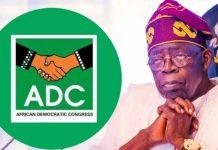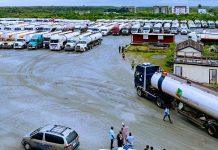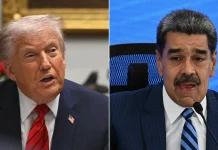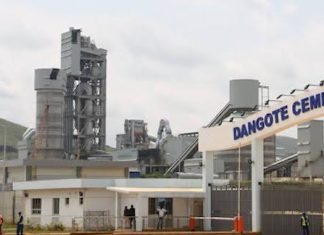

•Dangote eyes fertiliser supply to African countries in two weeks, plans 70% of group’s revenue in forex
The President and Chief Executive Officer of Dangote Industries Limited, Alhaji Aliko Dangote, has disclosed that the Dangote Petroleum Refinery will be listed on the Nigerian Exchange before the end of March, 2025.
This came as the refinery again delayed the date for the supply of Premium Motor Spirit, popularly known as petrol, till August, another shift from July.
Dangote disclosed that the refinery was set to roll out its petrol in August 2024, having resolved its crude oil supply issues through the help of the Nigerian National Petroleum Company Limited and the Federal Government.
He stated these when he took senior journalists on a tour of the refinery and Dangote Fertilizer plants in Ibeji-Lekki, Lagos on Sunday.
“We plan to list the refinery and petrochemical before the end of the first quarter of next year, ” he stated.
He noted that the issue the refinery was having with international oil companies regarding the supply of crude was resolved last week.
“The issue of crude has been settled last week. But we hope that the IOCs will respect it, ” he added.
Dangote also revealed that the Federal Government owned only a 7.2 per cent stake in the Dangote Refinery against the 20 per cent that was publicised.
“The Federal Government have only 7.2 per cent because it failed to pay for the balance for the 20 per cent stake
Recently, the Vice President of Oil and Gas at Dangote Industries Limited, Devakumar Edwin, had last week accused international oil companies in the country of plotting to frustrate the survival of the new Dangote refinery.
Edwin said the IOCs were deliberately and willfully frustrating the refinery’s efforts to buy local crude by hiking the cost above the market price by $6, thereby forcing the refinery to import crude from countries as far as the US, with its attendant high costs.
Edwin stated, “The IOCs are deliberately and willfully frustrating our efforts to buy the local crude.
“It seems that the IOCs’ objective is to ensure that our petroleum refinery fails. It is either they are deliberately asking for a ridiculous and humongous premium or they simply state that crude is not available.
“At some point, we paid $6 over and above the market price. This has forced us to reduce our output as well as import crude from countries as far as the US, increasing our cost of production.
“It appears that the objective of the IOCs is to ensure that Nigeria remains a country, which exports crude oil and imports refined petroleum products. They are keen on exporting the raw materials to their home countries, creating employment and wealth for their countries, adding to their Gross Domestic Product (GDP), and dumping the expensive refined products into Nigeria, thus making us dependent on imported products.”
‘Crude crisis resolved’
However, Dangote’s confirmation of the resolution of the crude crisis might be a soothing balm to Nigerians who feared the lack of feedstock might jerk up the price of the refinery’s PMS.
Our correspondents report that this will be about the third time the refinery will postpone its PMS delivery date since it commenced the supply of diesel and aviation fuel into the Nigerian market.
According to Dangote, the refinery commenced full operations in 2024. starting with the refining of intermediate products such as polypropylene, naphtha, RCO, gasoline, diesel, and jet fuel.
He noted that the refinery steady state production phase commenced in March 2024 while also expecting the ramping up production to reach 500,000 barrels per day with 15 crude cargoes a month by next August, 550,000bpd by the end of the year, and 650,000bpd by the first quarter of 2025.
According to a presentation by Dangote during the tour, the refinery project is said to be fully online, with over $26bn being expected annually.
“Successful completion of trial run in January 2024. Refined and intermediate products include polypropylene, naphtha, RCO, gasoline, diesel, and jet fuel. Steady state production phase commenced in March 2024.
“Ramping up production to reach 500kbpd (15 crude cargoes a month) by next August, 550kbpd by the end of the year, and 650kbpd by the first quarter of 2025. Gasoline production is to commence in July with sales from August. Annual revenue is projected to exceed $26bn,” Dangote stated.
He added that the refinery had dedicated loading gantries with 86 loading bays; dedicated marine facilities for offtake of crude and loading of petroleum products; 900-kilo tonnes per annum polypropylene plant, 36ktpa sulphur, and 585ktpa carbon black production.
The total storage capacity of the refinery is put at 4.5 billion litres, which can cover 20 days of crude requirement product storage for 15 days of Nigeria’s petrol consumption.
He averred that the refinery would produce 53 million litres of petrol per day and 1.1 million tonnes per day.
“The Dangote Refinery can meet Nigeria’s requirements and have a surplus for exports,” he boasted.
On oil and gas, he added further, “We have built over 200km of gas pipelines in partnership with NGIC on a BOT basis. We also have other projects in the pipeline including a 3 billion cubic feet East-West Gas Gathering System offshore pipeline (design and engineering completed, awaiting commercial framework); 600 million standard cubic feet onshore gas pipeline(construction stage); and 300mscf gas processing facility (design stage).
These projects, he said, would help deliver gas for further investment and also help stabilise gas pressure in the Escravos–Lagos Pipeline System
The According recalls that during the Africa CEO Summit in Rwanda, Dangote promised that the refinery would put an end to the monthly importation of an average of 1 billion litres of premium motor spirit in Nigeria the moment the refinery started selling the product in June.
According to him, following the laid-down plans of the Dangote refinery, Nigeria will no longer need to import petrol starting in June.
Dangote also stated that his refinery can meet West Africa’s petrol and diesel needs, as well as the continent’s aviation fuel demand.
He said, “Right now, Nigeria has no cause to import anything apart from gasoline and by sometime in June, within the next four or five weeks, Nigeria shouldn’t import anything like gasoline; not one drop of a litre,” he declared.
He added, “We have enough gasoline to give to at least the entire West Africa, diesel to give to West Africa and Central Africa. We have enough aviation fuel to give to the entire continent and also export some to Brazil and Mexico.
“We have started producing jet fuel, we are producing diesel, and by next month, we’ll be producing gasoline. What that will do is that, it will be able to take most African crudes.”
In June, Dangote informed Nigerians his plan to release premium motor spirit into the market in the sixth month of the year would no longer be possible, sparking reactions from Nigerians.
The President of Dangote Group, Aliko Dangote told newsmen during a tour of the facility with Governor Babajide Sanwo-olu of Lagos State and other dignitaries that the petrol from the 650,000 barrels capacity refinery would be out in July.
Dangote said this was due to some minor challenges, stating that the product would be out by July 10 to 15.
“We had a bit of delay, but PMS will start coming out by 10 to 15 of July. But then we want to keep it in the tank to make sure that it settles. So by the third week of July, we’ll be able to come out to take it into the market,” Dangote had said.
Contrary to popular belief, Dangote announced that the NNPC has a 7.2 per cent stake and not 20 per cent as being speculated.
He stated that while the NNPC had promised to provide the funds, it had been unable to meet its obligations, thus reducing its stake in the $19bn refinery to 7.2 per cent.
He said, “The NNPC no longer owns a 20 per cent stake in the Dangote refinery. They were meant to pay their balance in June but have yet to fulfil the obligations. Now, they only own a 7.2 per cent stake in the refinery.”
In a statement on Sunday, the NNPC confirmed that it decided not to add to its earlier investment in the refinery.
According to the NNPC Chief Corporate Communications Officer, Olufemi Soneye, the energy company had several months ago decided to cap its investment at the amount already paid. Soneye hinted that the decision not to invest any further in the Dangote refinery did not impact NNPC’s business.
“Several months ago, we made a commercial decision to cap our investment at the amount already paid. This decision was taken by NNPC Ltd and has no impact on our business,” he said tersely.
Listing in Q1
Dangote announced plans to list his refinery and fertilizer plants on the Nigerian Exchange Group by the first quarter of 2025.
The decision to list the two subsidiaries comes as the group seeks to expand its investor base and unlock further value for shareholders.
Dangote disclosed that the company’s construction of rice mills with a 1-million-tonne capacity is ongoing, saying the Jigawa plant is expected to be commissioned in a few months.
Dangote disclosed that the delay in securing a site for the Dangote Petrochemical Facility in Ogun State resulted in a $500m loss.
He attributed the financial setback to the protracted process of acquiring land at the Olokola Free Trade Zone refinery cost him $500m on the $2.5bn initial drawdown on bank loans.
He expressed displeasure over the bureaucratic hurdles encountered, which he said negatively impacted the project timeline and overall costs.
“The three years and eight months delay by Ogun State govt over Olokola land for petrochemicals facility cost us $500m,” Dangote said.
Fertiliser production resumes
It was gathered that the company’s fertiliser plant would resume production in two weeks to give farmers a more productive harvest.
He said there was a massive request for Dangote fertiliser from Nigerians and the rest of Africa.
He noted that the fertiliser plant has 3Mta of granulated urea (2 lines of 1.5Mta each), saying it was largely export-driven business with 12 per cent sold domestically and 88 per cent exported to Sub-Saharan Africa, South America, the United States and Europe.
He revealed that the production of fertiliser has increased by 48 per cent to 1.2 million tonnes in 2023, creating 1,500 direct jobs and about 5,000 indirect jobs.
The richest man in Africa has projected that the company’s revenue would grow to about $30bn in the next few years, increasing six times.
It was mentioned that 75 per cent of the group’s revenue currently comes from the cement business; 80 per cent of of Earnings Before Interest, Taxes, Depreciation and Amortization comes from Nigeria, with 90 per cent of revenue in various local currencies.
In future, the Dangote Group projected that 15 per cent of revenue would come from the cement business; 50 per cent of EBITDA from outside Nigeria (including exports) and 70 per cent of revenue in hard currency.
During the presentation, Dangote noted that the company’s cement is the leading cement player in Africa with a total capacity of 52 million tonnes per annum across 10 countries. He said, “Plans are underway to add a total of 9m tons of capacity in Nigeria and Cote d’Ivoire”.
The According reported recently that the Federal Government and crude oil producers in Nigeria have committed to working towards a sustainable supply of crude oil to Dangote and other local refineries under a market-determined pricing system.
Both parties said the aim of the commitment was to ensure that while the operators (crude oil producers) do business optimally, the refineries are not starved of feedstock.
Accordingly, the industry regulator, the Nigeria Upstream Petroleum Regulatory Commission has directed oil refiners in the country to provide monthly price quotes on crude supply.
This came as the $20bn Dangote Petroleum Refinery is reportedly ramping up the importation of crude from the United States, Bloomberg reported on Thursday.
Oil producers
In a statement issued in Abuja on Thursday, the NUPRC stated that oil producers under the umbrella of the Oil Producers Trade Section of the Lagos Chamber of Commerce and Industry, at a meeting called by NUPRC, agreed to concede to a framework that would be mutually beneficial with the aim of ensuring that local refineries are not strangulated due to off-the-curve prices.
“The focus of the meeting held at the instance of the Commission Chief Executive, Gbenga Komolafe, was on the status review of the Framework for Seamless Operationalisation of Domestic Crude Oil Supply Obligation Template.
“It was part of efforts to effectively implement key sections of the Petroleum Industry Act (PIA) 2021, especially the issue of pricing and crude supply to the domestic refineries,” the commission stated.
According to Komolafe, President Bola Tinubu is fully committed to providing a level playing ground for producers and refiners to do business in the industry.
He said there is a need to have a rule of engagement “to ensure that the pricing model from the oil producers is not seen to be strangulating the domestic refineries”.
He directed producers and refiners to henceforth provide the regulator with cargo price quotes on crude supply and delivery to monitor and regulate transactions among parties effectively.
“We need to have the price quotes on a monthly basis,” he directed.
Komolafe emphasised that the Domestic Crude Oil Supply Obligation has a convergence with the nation’s energy security.
The NURPC boss said his administration is re-engineering its regulatory processes.
“We allow all our processes to be transparent. While the Federal Government targets implementation of the regulation, all parties must concede to the rules of engagement as a guide for operation,” he said.
The regulator said it is committed to driving the issue of willing buyer/willing seller.
“We need to discuss pricing especially as parties have committed to respecting their domestic crude oil obligation. For us as the regulator, we don’t want the upstream sector to be operated sub-optimally through cost under-recovery. So, the regulator is very alive to that. In crude pricing, we will never allow price strangulation to disincentivise our domestic refining capacity optimisation.
“The regulator does not support cost under-recovery in the upstream sector, and we will continue to work to ensure that crude supply profiteering as a negative factor that can strangulate our domestic refining capacity optimisation is disallowed,” he stressed.
The CCE further stated that the NUPRC is truly committed to the attraction of needed investments to boost upstream development and optimisation of our hydrocarbon resources just as we want sustainability of domestic energy supply in the midstream and downstream sector.”
Join Television Nigerian Whatsapp Now
Join Television Nigerian Facebook Now
Join Television Nigerian Twitter Now
Join Television Nigerian YouTUbe Now





















